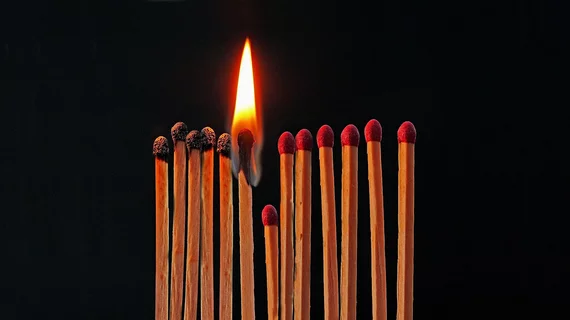49% of radiologists surveyed say they’re burned out, with ‘lack of respect’ a top driver
About 49% of radiologists surveyed say they are burned out, placing the profession tied for seventh among specialists experiencing such workplace fatigue, Medscape reported Friday.
Radiologists cited “lack of respect” from administrators, colleagues or other staffers as the top contributor to burnout at 60%. Other popular answers included “too many hours at work” (50%), lack of control or autonomy over one’s life (47%), and too many bureaucratic tasks (30%). The findings are based on an online survey of more than 13,000 physicians including 300 radiologists, conducted between June and September.
Female radiologists have been hit harder, Medscape found, with 65% saying they’re burned out compared to 44% of males surveyed.
“There’s no question that women have reported far more role strain during the pandemic than men,” psychiatrist Carol Bernstein, MD, a professor and vice chair for faculty development and wellbeing at the Albert Einstein College of Medicine, told Medscape. “Often women assumed more of the childcare and homeschooling responsibilities in their households. As a result, we know that more women dropped out of the workforce.”
About 55% of radiologists said they feel more burned out now than during the early days of the pandemic, while 39% stayed the same. Another 67% of radiologists believe burnout has had a negative effect on their relationships, while 33% did not. Common tactics to alleviate this concern include participating in meditation or using other stress-relieving techniques (26%), reducing hours (21%), changing work settings (21%), or speaking with administration about “productivity pressure” (13%). Most radiologists (62%) said they would take a salary reduction in exchange for better work-life balance.
Read more from Medscape below.

